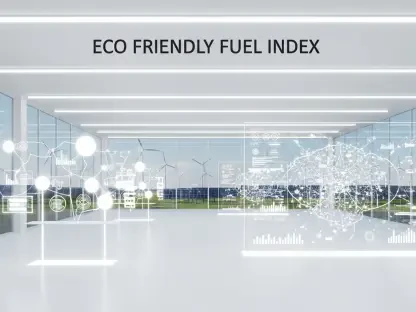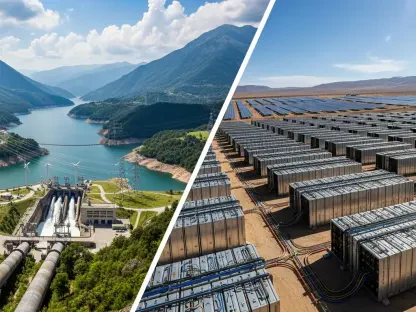The article tackles an intensely contentious issue: whether Afghanistan, now under the Taliban regime, should be granted access to global climate finance despite the regime’s notorious human rights record, especially its systemic oppression of women and girls. This dilemma poses several ethical, humanitarian, and political questions on the international stage, primarily centered on whether providing climate funding might inadvertently legitimize the Taliban’s governance. As the climate crisis escalates, Afghanistan’s unique predicament calls for an urgent reassessment of how international aid is allocated and administered, taking into account the overlapping challenges of governance, human rights, and environmental vulnerabilities.
Afghanistan’s Escalating Climate Crisis
Afghanistan is facing an escalating climate crisis, marked by frequent and severe environmental disasters, including droughts, floods, and food insecurity. Despite contributing less than 0.1 percent to global emissions, Afghanistan finds itself disproportionately affected by these climate disasters. The gravity of the situation impelled the Taliban to make a case for accessing international climate funds and participating fully in global climate discussions, as demonstrated by their presence as observers at the recent Cop29 in Baku. The profound impact of climate-related disasters on Afghanistan’s population, particularly its most vulnerable segments, is a key theme. Prolonged droughts and sudden floods have wreaked havoc, displacing thousands, destroying homes, and decimating agricultural productivity, leaving millions of Afghans facing hunger and deprivation. The humanitarian argument for granting Afghanistan access to climate finance hinges on the urgent need to address these environmental challenges to prevent further suffering and destabilization.
Moreover, addressing Afghanistan’s climate vulnerability is not just a matter of immediate relief but a crucial step toward long-term regional stability. Environmental migrants contribute to socio-political tensions and the destabilization of neighboring countries. Therefore, international climate finance could play a pivotal role in averting a cascade of crises. The scenario draws attention to the complex interplay between environmental degradation and human security, particularly in regions already beleaguered by conflict. As climate change continues to pose an existential threat to Afghanistan’s agricultural base and water resources, the country’s ability to sustain its population hangs in the balance, making the allocation of climate funds an issue of both morals and survival.
Suspension of Climate Funds and Its Impact
With the Taliban’s ascent to power in 2021, access to international climate funds such as the Green Climate Fund (GCF) and the Adaptation Fund was suspended. This sudden freeze had a significant detrimental impact, halting around $2.8 billion worth of ongoing infrastructure projects vital for disaster preparedness and mitigation efforts. The unintended consequence was a punitive measure against the Afghan people rather than their rulers, exacerbating their vulnerabilities. The current approach, reliant on UN agencies and NGOs to provide climate-related aid, is insufficient. While these humanitarian channels are crucial, they lack the scale and coordination necessary to tackle the country’s extensive and interconnected environmental issues effectively. Practical measures, such as constructing flood barriers, installing rain gauges, or setting up check dams, are impeded by a severe funding shortfall. Moreover, the lack of community education and preparedness exacerbates risks, especially in remote and rural areas where knowledge of disaster response is virtually non-existent.
The freeze on financial aid also disrupted the continuity and scaling of community resilience programs. Many local initiatives that had shown promise in reducing vulnerability were abruptly terminated, leaving communities exposed to the very risks these programs were designed to mitigate. Another crucial aspect to consider is the role of financial continuity in fostering local expertise and building institutional capabilities. With funds frozen, the progress ceded to years of hard-won knowledge and capacity-building was significantly undermined, setting back the country’s overall resilience efforts. International focus shifted to crisis management rather than long-term adaptation strategies, which are essential for creating a sustainable path out of perpetual emergency scenarios.
Ethical Dilemma of Engaging with the Taliban
The ethical dilemma centers on whether any form of engagement or aid to the Taliban-dominated Afghanistan amounts to a de facto recognition of their rule, which fundamentally opposes international human rights norms. Criticisms are voiced from various quarters, including Human Rights Watch, which argues that any form of UN or international interaction with the Taliban that avoids addressing their human rights violations, particularly against women, risks undermining the credibility of global institutions committed to upholding these values. Experts and advocates contend that the international community must find alternative ways to deliver critical climate aid without directly empowering the Taliban. They highlight the potential for channeling funds through established humanitarian organizations or regional collaborations, which could ensure that aid reaches those in need without reinforcing Taliban authority. This approach is argued not only as a means of ethical engagement but also as a pragmatic response to prevent further human suffering and environmental degradation.
A significant ethical consideration is the potential for aid dependency impacting future governance structures. By channeling funds through NGOs and international bodies, rather than through the Taliban regime, the international community can avoid legitimizing an oppressive government while still fulfilling its humanitarian responsibilities. This method involves a delicate balance, ensuring that the victims of climate change receive the necessary aid without the aid bolstering the regime that controls them. Moreover, the systemic exclusion of women from funding and education opportunities further complicates any direct aid transactions with the Taliban-controlled government, reinforcing the need for a more diverse, inclusive, and transparent approach to climate finance.
Taliban’s Environmental Management Efforts
The Taliban’s own attempts at environmental management, such as the Kush Tepa Canal project, are discussed within the article. However, these efforts are scrutinized for their lack of technical depth and comprehensive planning, casting doubt on their potential to provide sustainable solutions. Experts stress that national-level coordination and expertise are imperative for effective climate adaptation, something the isolated Taliban regime cannot achieve alone. The sustainability of such projects is highly questionable without internationally accepted standards and the incorporation of community-specific knowledge for long-term success. Projects like these, although ambitious, lack the technological advancements and precise implementations required to address Afghanistan’s intricate environmental issues comprehensively.
Additionally, the environmental projects initiated by the Taliban have raised questions about resource allocation and priority-setting under their governance. Critics argue that without rigorous scientific backing and stakeholder engagement, these projects may end up being counterproductive, possibly exacerbating existing environmental and social issues rather than alleviating them. Also, the lack of transparency and accountability within the Taliban regime further complicates the assessment of such projects, making it difficult to gauge their actual impact. In essence, the overarching concern remains that any isolated effort by the Taliban, devoid of collaborative frameworks and expert inputs, is unlikely to meet the standards required to effect significant positive change in Afghanistan’s environmental landscape.
Strategic and Symbolic Implications
Many worry that granting climate funds to the Taliban could strengthen their regime and further entrench their power, making it harder for the international community to influence positive change. Supporters of providing aid argue that Afghanistan is highly vulnerable to the impacts of climate change, which disproportionately affect its poorest citizens. Denying climate finance could exacerbate suffering and instability, potentially leading to even greater humanitarian crises. The international community faces a difficult decision in balancing immediate environmental needs with long-term human rights and humanitarian considerations.









